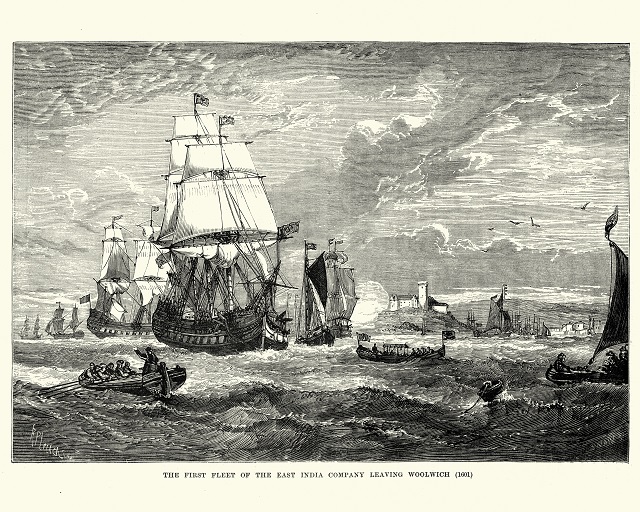
Credit: Duncan1890/Getty Images
How far would you go to make sure your food doesn’t taste bland? Would you cross the seven seas for cinnamon, like the British East India Company did?
In the early 1600s, King James I of England needed cash. And he built on a charter that Queen Elizabeth I - his predecessor - had issued. What James did would, in modern times, be considered a breach of power. He allowed the East India Company to establish a virtual monopoly over trade with Asia and, in return, he asked for a share of the company’s profits.
Mixing private and public interests may be frowned upon today, but the dividing line in the 17th century was a lot more ambiguous, according to Rupali Mishra, an associate professor of history at Auburn University and author of the book, “A Business of State: Commerce, Politics, and the Birth of the East India Company.”
Three Takeaways:
- Pooling risk and issuing stock, in order to raise vast amounts of money, was unique at the time and financed the East India Company’s precarious and lengthy journeys. The company opened new avenues for acquiring wealth that were no longer dependent on land ownership.
- The corporate models molded in the 17th century still influence how businesses are run today. Mishra highlights the case of Sutton’s Hospital, a case which allowed corporations to exist as legal entities, separate from the people who owned and ran them.
- As much as we would like to think of corporations and governments as separate entities, their interests have been merged for a long time. Indeed, Mishra notes, states continue to hire and license private companies to carry out actions they may not have the capacity to do on their own.
More Reading:
- In its early years, the East India Company focused on establishing itself as a successful trading business, but, by the 18th century, things took a darker turn. Read more about how that shift happened, and why William Dalrymple, a historian, refers to the East India Company as the “original corporate raiders.”
- The United States had a famous tussle with the East India Company: the Boston Tea Party.
- The East India Company tried to create a monopoly over American tea, but then another product caught their eye: opium.
- To learn more about how the East India Company changed the world, listen to this episode by Stuff You Missed in History Class.

